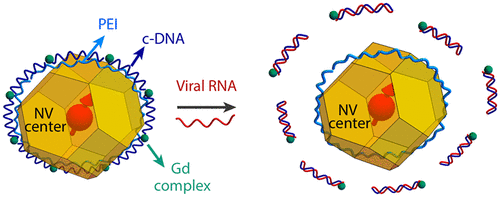
Researchers from the Department of Applied Mathematics are part of a team developing new testing technology for SARS-CoV-2, the virus that causes COVID-19.
Mohammad Kohandel, associate professor of applied mathematics and an affiliate of the Centre for Mathematical Medicine at the Fields Institute, along with Rouhollah Soleyman, a postdoctoral researcher in applied mathematics, have teamed up with researchers from the Massachusetts Institute of Technology on the project.
The new testing technology involves using nanodiamonds as a site for detecting the RNA signatures of specific viruses. A laser optical sensor is then used to analyze the sample collected on the nanodiamonds.
While there are currently tests for SARS-CoV-2, including rapid antigen tests and polymerase chain reaction (PCR) tests, these have large margins of error and in the case of PCR tests can take a long time to give results. The proposed quantum sensor tests the team is working on produce results in seconds and with only a one percent margin of error.
The team's goal is now to develop a prototype to confirm the results of the modelling and predictions.
While the initial interest in the new testing technology is squarely focused on SARS-Cov-2, there are further applications for testing for any kind of virus.
The initial research, SARS-CoV-2 Quantum Sensor Based on Nitrogen-Vacancy Centers in Diamond, was recently published in the journal Nano Letters. Read more in the press release from MIT.